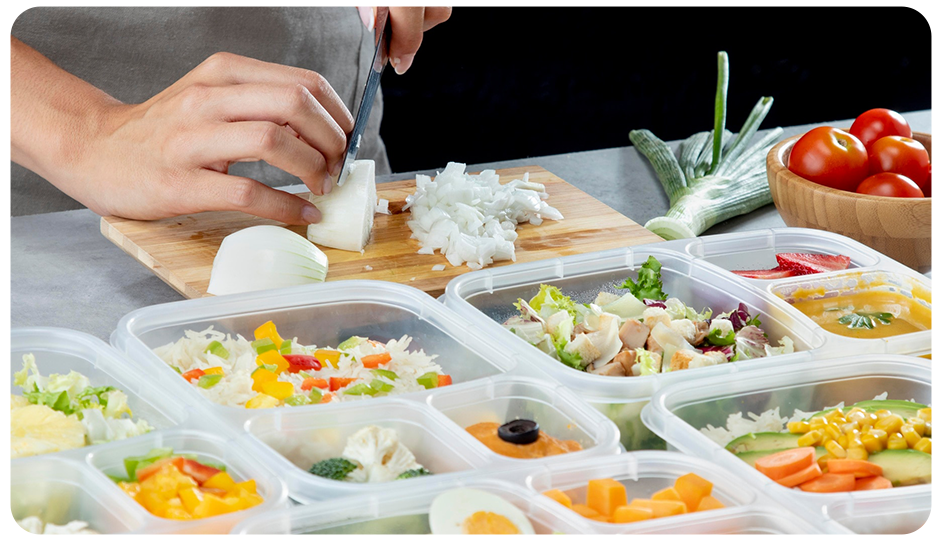Weight Loss Calculator - How Long
Will It Take?
Weight Loss Surgery can be a great way to start your journey to a healthier lifestyle. But how do you know if you're making the right progress, eating enough or not too much, and getting enough of the major food components daily to keep you healthy?
A weight loss calculator can help you track your progress and ensure that you lose weight healthily and sustainably. In this article, we'll talk about why we calculate weight loss after Weight Loss Surgery and how important it is to use your powers of observation, introspection and professional support along the way. We'll also provide tips for making the most of your weight loss calculator to help you reach your goals.
There are two calculations you'll need to be familiar with - one is the weight loss calculator, which will provide a rough idea of the daily calories you will be aiming for to ensure sustainable weight loss.
You can access our handy weight loss calculator here!
Weight Loss Calculator
What is the weight loss percentage calculator?
The other calculation you will hear about from your bariatric team is the weight loss percentage calculator.
This will give a rough indication of your expected weight loss and your "goal weight" after the initial phases of your surgery journey are over.
The weight loss percentage calculation indicates the percentage of excess weight you would be looking to lose to return to a healthy BMI/body weight. This can also be expressed in kilograms you will aim to lose to achieve your goal / healthy weight. On average, sleeve gastrectomy results in the loss of 60% of excess weight; the rest will be up to you and your new habits, activity, mindset, and portion sizes over the long term.

- Now, we have just thrown a lot of numbers at you and many black-and-white calculations as a suggested method of calculating your weight loss. This can be fraught with concerns if you are anything like most bariatric patients who have tried every diet, counted every calorie, increased activity levels, and worked really hard to lose weight by creating a daily calorie deficit and still ended up piling on even more weight. So we need to be aware that taking thins too low can also be a problem - and is definitely the reason average Joe can lose weight by using calorie deficit but will experience the massive rebound weight gain, or yo-yo effect once they are no longer "dieting."
My advice? It's essential to know where you are headed so you know if you are tracking well, so calculating your weight loss percentage, calculating your daily calorie needs, and knowing what your "ideal weight" is are all important - because this is where a good representation of health will be realised.
BUT - counting everything is never generally a healthy past time, leads to a restrictive/dieting mindset, and particularly for anyone who has an obsessive nature, has experienced disordered eating or who has lived on the diet roundabout, it will do your own head in overtime - which is precisely what we are trying to avoid after Weight Loss Surgery.
I encourage you to leave the calculator at the surgeon's office and use more user-friendly methods of managing your weight loss efforts.
Learning about food is the key to long-term success, losing weight and keeping it off for good, and your effort for counting things might be better invested in learning the "Macros" content of your food and keeping a running total of that instead.
Macros - Macronutrients are Carbs, Fats, and Protein. And if you set a target of 50% protein at each meal and the rest in non-starchy carbs and healthy fats, you'll find things fall into place pretty quickly with this method.
Portion management is the key player in your success, alongside meeting your protein targets.

Perhaps instead of counting every calorie and every bout of exercise as a measure, get familiar with the bariatric portion plate and bowl and stick to the servings of protein, carbs and healthy fats for each meal and snack.
Couple this method with increased daily activity levels, and you'll find it can be a lower-stress method to reaching your overall percentage of excess weight loss and reaching your goal weight without the feeling of limitation or deprivation,
Leave the weight loss calculator and the weight loss calorie calculator to your professional team, keep track of your meals and your macros, monitor what works for you as far as achieving fat loss, maintaining healthy body weight, and aim more for a focus on healthy, sustainable lifestyle habits you can implement where ever you go, and whatever your state of mind.
Deep down, we know that if it was as simple as calories in and calories out always equals weight loss, why is there such a percentage of people trying to lose weight using this method that is simply not getting the results they should be?
There's much more to obesity than just eating less and moving more; simple maths is not always the answer. It can be a primary reason people give up on losing weight.
The approach needs to be more holistic.